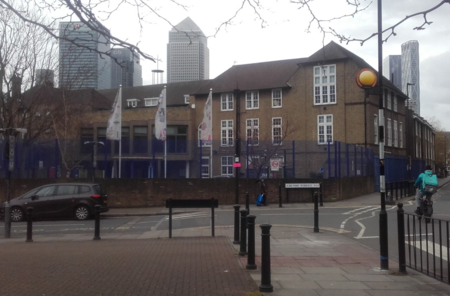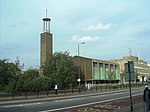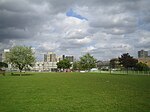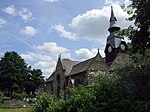Mayflower Primary School, Poplar
1843 establishments in EnglandCommunity schools in the London Borough of Tower HamletsEducational institutions established in 1843Poplar, LondonPrimary schools in the London Borough of Tower Hamlets ... and 2 more
School bombingsUse British English from February 2023

Mayflower Primary School is a primary school in the Poplar area of East London in the London Borough of Tower Hamlets. Originating in 1843 and formerly called Upper North Street School, it was badly damaged in an air raid in 1917 during the First World War, resulting in the deaths of eighteen children. The school was rebuilt in 1928 and adopted its present name in 1952. The school was judged to be "outstanding" at an Ofsted inspection in 2017, and was awarded the title "Primary School of the Year" in 2020 by a national newspaper.
Excerpt from the Wikipedia article Mayflower Primary School, Poplar (License: CC BY-SA 3.0, Authors, Images).Mayflower Primary School, Poplar
Upper North Street, London Poplar
Geographical coordinates (GPS) Address Nearby Places Show on map
Geographical coordinates (GPS)
| Latitude | Longitude |
|---|---|
| N 51.511589 ° | E -0.020289 ° |
Address
Upper North Street 20
E14 6DU London, Poplar
England, United Kingdom
Open on Google Maps









